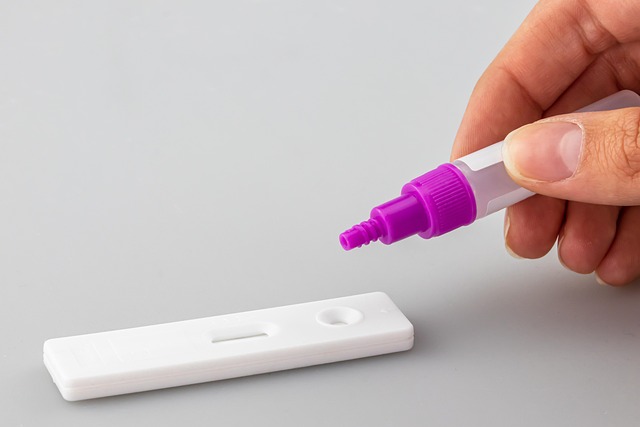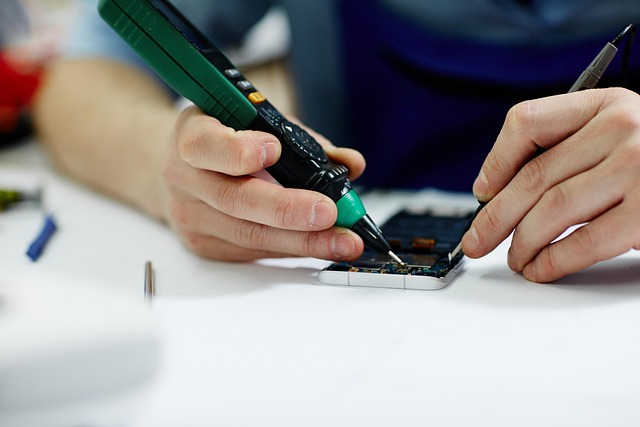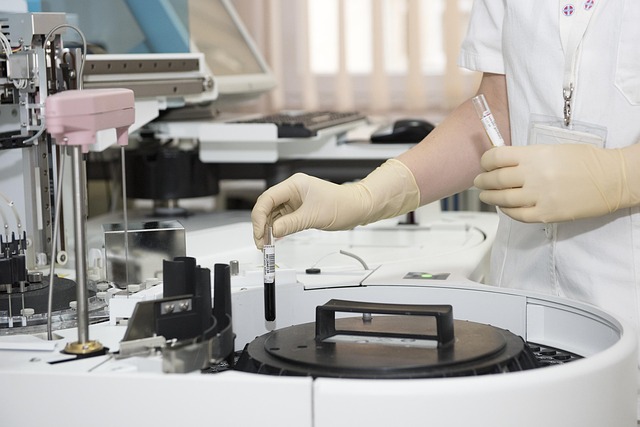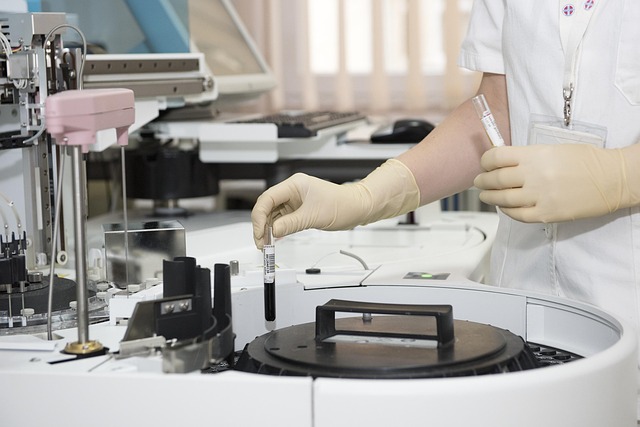Testosterone level tests assess male hormone health through blood draws or at-home kits, offering privacy and personalized treatment guidance for symptoms like decreased libido, erectile dysfunction, low energy, and muscle weakness. Costs vary based on location, facility, test complexity, and whether it's standalone or part of a broader assessment. Individuals can choose from primary care physicians to specialized clinics or at-home kits, with price ranges from $20-$500. Accurate interpretation requires professional guidance for clinical significance, especially for low-T, where lifestyle adjustments are initial options.
Considering a testosterone level test? Understanding your options is key. This comprehensive guide breaks down everything you need to know about testosterone tests, including costs, factors influencing prices, testing locations, result interpretation, and comparisons between lab services and at-home kits. Discover how to make an informed decision regarding this essential hormone assessment.
- Understanding Testosterone Level Tests
- Factors Affecting Test Cost
- Where to Get Tested: Options Explored
- Interpreting Test Results and Next Steps
- Cost Comparison: Lab vs. At-Home Kits
Understanding Testosterone Level Tests

Understanding Testosterone Level Tests
A testosterone level test service provides a critical tool for evaluating male hormone health. This diagnostic process typically involves either a blood draw or, more recently, at-home testing kits. The testosterone blood test measures the amount of this key hormone in your bloodstream, offering valuable insights into overall hormonal balance and reproductive health. It’s important to note that while testosterone is primarily associated with sexual function, it plays a vital role in maintaining muscle mass, bone density, energy levels, and overall well-being.
When is testosterone testing necessary? Certain symptoms or health concerns may prompt a healthcare provider to recommend a testosterone level test. These can include decreased libido, erectile dysfunction, low energy, muscle weakness, or changes in body composition. For men experiencing these issues, a best at-home testosterone test can offer convenience and privacy, while also providing data that can guide personalized treatment strategies if needed.
Factors Affecting Test Cost

The cost of a testosterone level test service can vary greatly depending on several factors. One of the primary considerations is the location and reputation of the testing facility or healthcare provider. Urban areas with high demand often charge more for these services compared to rural regions. Additionally, specialized clinics offering comprehensive hormone assessments might have higher fees than basic testing packages available at general practices.
Another influential factor is the complexity of the test itself. Basic testosterone level tests typically involve a simple blood draw, while more advanced panels that include additional hormones or markers can be significantly pricier. Furthermore, the cost may differ based on whether you opt for a standalone test or as part of a broader health assessment, with the latter often providing insights into overall well-being and potentially guiding discussions about low testosterone treatments options or managing symptoms of high testosterone in males. Understanding how to interpret testosterone lab results is crucial in determining the appropriate next steps and associated costs.
Where to Get Tested: Options Explored

When considering a testosterone level test service, individuals have several options to choose from. Many primary care physicians offer this service as part of their routine health assessments, making it accessible for those looking to monitor their hormone levels. Additionally, specialized endocrinology clinics are equipped to provide advanced testosterone testing, including tailored panels designed for specific populations like athletes. For athletes, testosterone testing can help identify performance-enhancing strategies or underlying hormonal imbalances.
Beyond traditional medical settings, there are also labs and online platforms offering testosterone level test services, sometimes even providing at-home collection kits. These options often come with digital platforms that allow users to track their results over time, facilitating personalized health management. A t-strip vs blood test comparison might influence a person’s choice; while both methods measure testosterone levels, the former is generally less invasive and more convenient. Individuals considering testosterone testing should weigh these factors, keeping in mind when is testosterone testing necessary for optimal well-being and performance.
Interpreting Test Results and Next Steps

After receiving your testosterone level test service results, it’s crucial to interpret them in context. Normal testosterone levels vary based on age and natural fluctuations throughout the day. A reliable men’s health testosterone testing method like a blood or saliva sample analysis will provide precise data. If your levels fall outside the reference range, don’t panic; discuss the findings with your healthcare provider. They can determine if the result is clinically significant and guide you on appropriate next steps.
If your test reveals low testosterone (low-T), options include lifestyle adjustments like diet and exercise. However, at-home hormone tests reviewed have varying accuracy, so consult a professional before relying solely on them for diagnosis. In some cases, prescription therapy or other medical interventions may be recommended to address testosterone deficiencies.
Cost Comparison: Lab vs. At-Home Kits

When considering a testosterone level test service, one of the key factors to weigh is the cost, which can vary significantly between lab-based tests and at-home kits. Traditional lab tests, often involving a blood draw, are typically more expensive due to the professional setting and specialized personnel required. These tests usually range from $100 to $500 or more, depending on your location and the specific test panel chosen.
In contrast, at-home testosterone level test kits, such as the T-Strip, offer a more affordable option. These kits allow for convenient testing in the comfort of your home, with prices usually falling between $20 to $100. While they may not provide the same depth of information as a lab test, at-home kits can be an excellent starting point for those curious about their testosterone levels, especially if they are considering natural ways to boost testosterone before consulting a doctor. A t-strip vs blood test comparison reveals that while both methods have pros and cons, at-home testing democratizes access to this important health metric.
When considering a testosterone level test service, understanding your options and what influences cost is key. After comparing lab tests against at-home kits, evaluating results, and exploring various testing locations, you’re now equipped to make an informed decision. Remember, the right choice depends on your individual needs, budget, and desired convenience. Whether through professional medical services or home testing kits, accurate testosterone level monitoring is accessible, affordable, and within reach for men looking to maintain optimal health.
